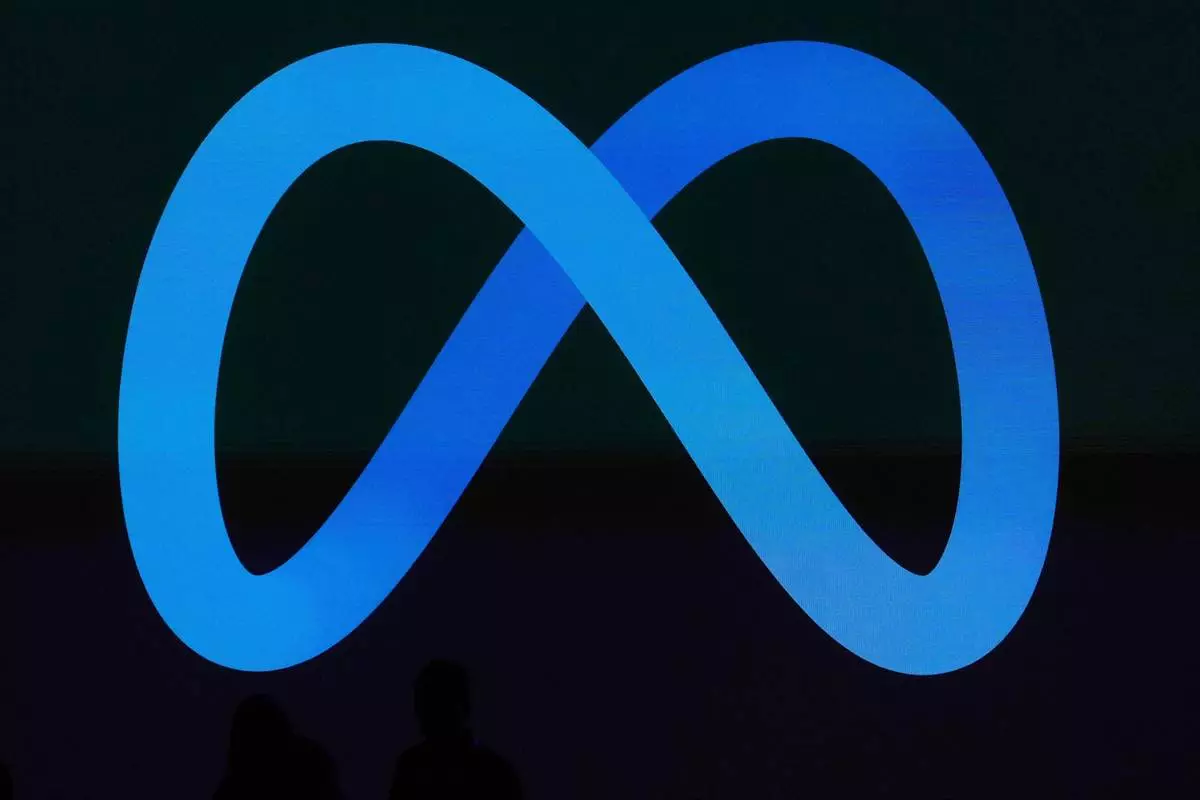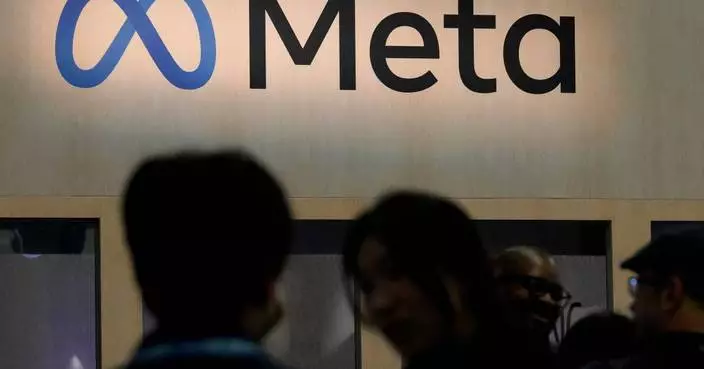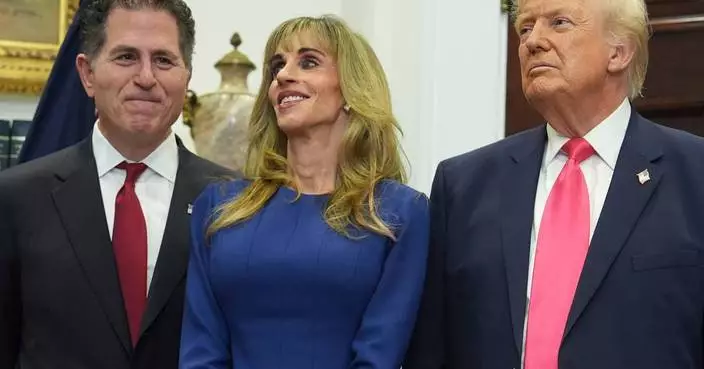Facebook is coming for your kids.
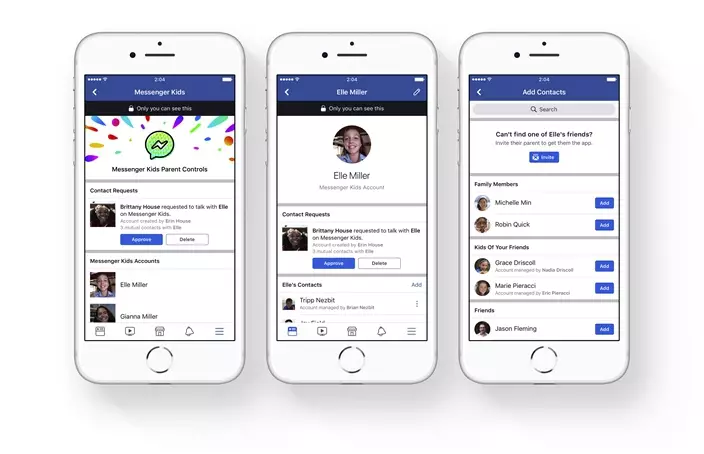
This photo provided by Facebook demonstrates parental controls on Facebook's new Messenger app for kids. (Courtesy of Facebook via AP)
The social media giant is launching a messaging app for children to chat with their parents and with friends approved by their parents.
The free app is aimed at kids under 13, who can't yet have their own accounts under Facebook's rules, though they often do.
Messenger Kids comes with a slew of controls for parents. The service won't let children add their own friends or delete messages — only parents can do that. Kids don't get a separate Facebook or Messenger account; rather, it's an extension of a parent's account. Messenger Kids came out Monday in the U.S. as an app for Apple devices — the iPhone, iPad and iPod Touch. Versions for Android and Amazon's tablets are coming later.
A KIDS-FOCUSED EXPERIENCE
While children do use messaging and social media apps designed for teenagers and adults, those services aren't built for them, said Kristelle Lavallee, a children's psychology expert who advised Facebook on designing the service.
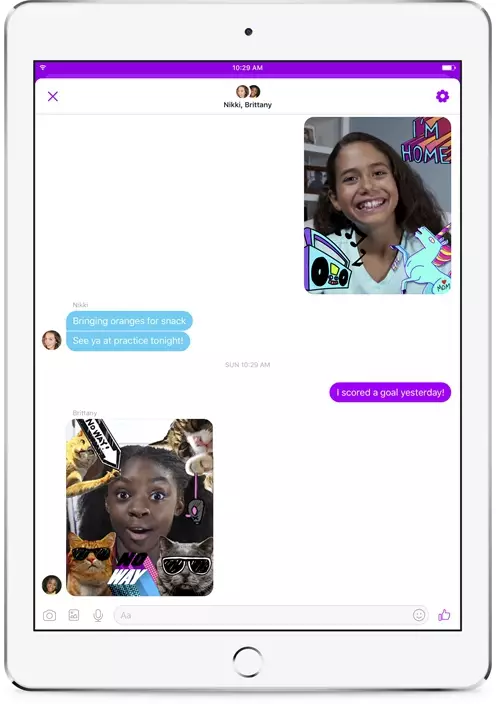
This photo provided by Facebook demonstrates Facebook's new Messenger app for kids on an iPad. Facebook is launching the messaging app for children to chat with their parents and with friends approved by their parents. The free app is aimed at kids under 13, who can't yet have their own accounts under Facebook's rules, though they often do. (Courtesy of Facebook via AP)
"The risk of exposure to things they were not developmentally prepared for is huge," she said.
Messenger Kids, meanwhile, "is a result of seeing what kids like," which is images, emoji and the like. Face filters and playful masks can be distracting for adults, Lavallee said, but for kids who are just learning how to form relationships and stay in touch with parents digitally, they are ways to express themselves.
Lavallee, who is content strategist at the Center on Media and Child Health at Boston Children's Hospital and Harvard University, called Messenger Kids a "useful tool" that "makes parents the gatekeepers." But she said that while Facebook made the app "with the best of intentions," it's not yet known how people will actually use it.
As with other tools Facebook has released in the past, intentions and real-world use do not always match up. Facebook's live video streaming feature, for example, has been used for plenty of innocuous and useful things, but also to stream crimes and suicides.
HOOKED ON FACEBOOK
Is Messenger Kids simply a way for Facebook to rope in the young ones?
Stephen Balkam, CEO of the nonprofit Family Online Safety Institute, said "that train has left the station."
Federal law prohibits internet companies from collecting personal information on kids under 13 without their parents' permission and imposes restrictions on advertising to them. This is why Facebook and many other social media companies prohibit younger kids from joining. Even so, Balkam said millions of kids under 13 are already on Facebook, with or without their parents' approval.
He said Facebook is trying to deal with the situation pragmatically by steering young Facebook users to a service designed for them.
MARKETING MATTERS
Facebook said Messenger Kids won't show ads or collect data for marketing, though it will collect some data it says are necessary to run the service. Facebook also said it won't automatically move users to the regular Messenger or Facebook when they get old enough, though the company might give them the option to move contacts to Messenger down the line.
James Steyer, CEO of the kids-focused non-profit group Common Sense, said that while he liked the idea of a messaging app that requires parental sign-ups, many questions remain. Among them: Will it always remain ad-free, and will parents get ads based on the service?
"Why should parents simply trust that Facebook is acting in the best interest of kids?" Steyer said in a statement. "We encourage Facebook to clarify their policies from the start so that it is perfectly clear what parents are signing up for."



